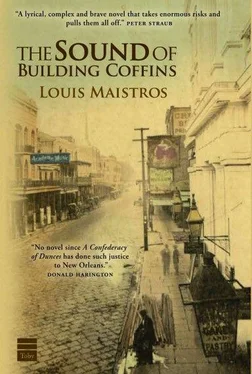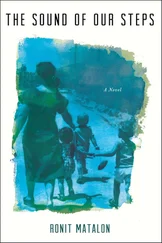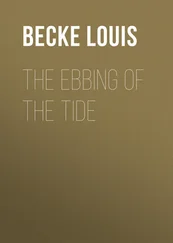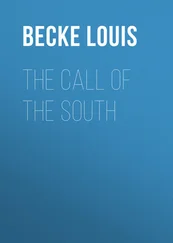Typhus slowed the bicycle.
Put one foot down, stopped the bike at a hard angle from the ground. Looked around slow. No lights. No movement but wind and low waves. No one around but Mr. Marcus looking for his elusive fish. Not another soul.
Typhus got off the bike and eased the burlap sack down to the moist wood of the boardwalk. Rolled the bike into hiding behind some shaggy codgrass near the pier. Slung the bag over his shoulder and lowered himself to the mud of the island. Walked the forty yards or so it took to get to the other side, the side that faced away from the pier and across the water. Out of sight, even from Mr. Marcus.
On the other side of the river was a place called Algiers. Typhus had never been there, had never had good reason to go across. By day it looked just like the pictures of Africa his Daddy liked to show him, but at night it was inky and wonderful, a huge and glorious dead spot where glimmering lemon slices stopped dancing. He took his shoes off and sat at the edge of the island’s shore with his feet in the water and the bag at his side. Chewed a hunk of tobacco his father had given him that afternoon after chores. Looked at Algiers and wondered, resting his hand on the bag, spitting juice into the water.
After the tobacco in his cheek was reduced to the vile, juiceless lump it was bound to become, he pulled it out of his mouth and winged it as far as he could into the river, causing lemon slices to laugh and jump for joy. Typhus slung the bag over his shoulder and waded into the water, clothes and all. When the river came about knee deep he knelt down in it and brought the little burlap bag before him. Lowered it into the water, not letting go, just allowing the water to rush in through the thousand tiny holes that make burlap what it is. Unknotted the top. Peeked in. Babies. Three tiny, unborn children. Getting their first taste of nighttime air and warm, muddy river.
Steadying the bag on his lap, Typhus reached a hand in and stroked the tiny arms and neck of one of the children. Scooped his other hand inside the bag and tenderly-so tenderly-separated the little creature from its brother and sister. Let its tiny head bob at the water’s surface. Its sweet face looked up at the moon, bathed in lemon light. There was no pain in this face. No tragedy or loss. But there was something missing.
Life.
Typhus’ small hands looked huge holding the little creature. He held the baby steady at the surface and gently cleansed him, let the water wash over its pink and blue skin. Washing away the sticky blood and gelatin of birth.
Typhus Morningstar closed his eyes. Smiled.
“Come on, little fella. Time to be on yer way.” Opened his eyes again. Looked down.
He held the baby’s arms to its sides with the slightest pressure, his left hand moving up and down along the child’s right arm in a sweeping caress. Its smooth skin yielded to his touch like clay, gradually melting to its side. Seamlessly. He repeated this process with the left arm until both sides were a perfect match. Then Typhus focused on the legs, stroking and smoothing the soft flesh into a single fat leg, his gentle hands molding the unborn child’s figure into a swooning teardrop. Next were the shoulders. So smooth. So trusting. Blending into the neck so perfectly. Exactly like wet clay.
Last was the head.
Nose and mouth extending into one. Lips disappearing. Eyelids vanishing over wide, round, flat, staring eyes. Cheeks flattening. Smooth. Perfect. Warm.
Typhus held the newly shaped fetus underwater. As the head went under, there appeared a moment’s struggle-but there’s always a slight struggle in waking moments, Typhus acknowledged. The legs, now a tail, thrashed about. Mouth bubbling, horizontal slits opening where ears used to be, head bucking. Typhus held fast, stroking the creature ever gently till it calmed. Cooing. Said the thing that he always said at this point:
“They gave it to me, but I gave it back the best I could.”
He sang as the baby finished its changing time, its water birth. The song he sang was of a religious nature, but he placed no significance on the words. He just thought it was a pretty tune, something sweet to sing as he delivered his children. It put them at ease, or so it seemed.
Jesus, I’m troubled about my soul
Ride on, Jesus, come this way…
The tiny catfish was pure pink and rapidly calming now, its tail experimentally flicking at the currents of the top waves with hungry curiosity. With a kind of yearning.
It was time.
Typhus let go. A tear rolled down his cheek. It was always hard to let the babies go.
Swimming now. Towards Algiers. Disappearing from sight. Beneath sparkly slivers of yellow light.
Troubled about my soul…
Again, and with great love, Typhus Morningstar reached into the burlap bag.
A light drizzle began to fall.
The song began like all melodies, with a single note.
On this day, at this hour and this particular moment, the note was E flat. Unaccompanied, the note betrayed key neither minor nor major, betrayed no key at all. Beginning soft as breath and held, gaining strength and definition with only the slightest quiver. Not vibrato in any premeditated way, just the lightest jangle of the player’s nerves, his humanity, his heartbeat.
Then a fade.
As if the note were giving way to something greater than itself, greater than its own simple purity and strength; weakening ever gently. Giving up quietly, submitting to its own misinformed sense of futility, going back to earth, to the simple clay of dumb beginnings and answerless endings.
***
The player considers the note. He cannot sustain. There is no reason. But the weakening tone is somehow unfinished. Like a spirited pup born too soon, too small and too weak to live, knowing nothing of life but clinging to it anyway; stupidly, stupidly-fighting for its chance but not knowing why, not understanding what sort of thing the chance is. Not knowing anything.
But knowing everything it will ever need to know. Its heartbeat struggles, weakens, slows-but does not stop. And then:
The fade is cut short, interrupted by a flurry of sound; a quick burst heading skyward, headstrong and unexpected, defying the futility of the E flat, exposing a minor key in the subtlest way, transforming the uncertainty of E flat into a belligerent D. Holding. Dipping. Leaping and crashing-but not crashing.
Saved .
Gliding back down to…E flat again? No. A. Holding again-but not holding. Bending, wavering, wanting to climb too high but resisting-spinning somehow without moving up or down, pulling something from deep within the player, bringing this thing out of the cornet, out through the cornet. All this in a single note. A single, simple, ordinary note.
A.
But not A. Something about the A is different. It is a different world from the world of the E flat entirely. Something about the way the player arrived at the A. Not that it was discovered, but how it was discovered. Something about the player’s reaction to the note, the lightness of mind and intensity of spirit it brought him for just a moment. Something about the way the instrument reacted to the touch of his lips, the way it trembled in his grip. The note was A.
A .
But not A.
This is where things change; completely, irrevocably.
But with change comes clarity. And with clarity comes understanding. And with understanding comes questions. And with questions of this kind comes a sort of madness.
E flat. Transition. A.
Questions.
The player stops.
He is drunk. He does not know what has happened. His mind is not ready for the questions, he doesn’t want to hear them. He reaches for his bottle of train yard-grade gin but only knocks it to the floor; the bottle doesn’t break and he doesn’t pick it up. He lays his horn on the pillow, he lays his head next to the horn; it is inches from his eyes. His eyes are red, he feels tears building there but doesn’t let them through. They close. He strokes the horn. He falls asleep. Gin drips to the floor, the bottle on its side.
Читать дальше












